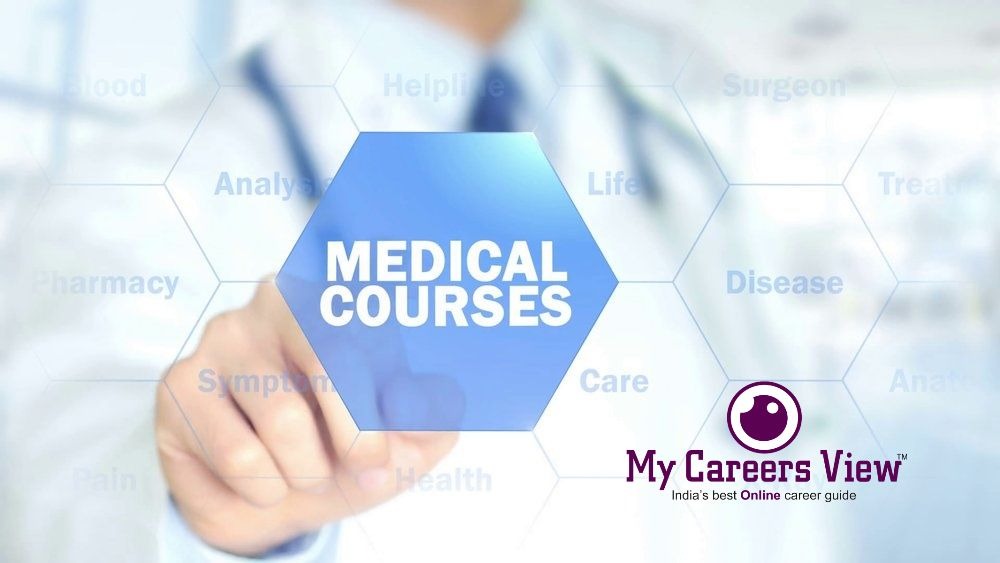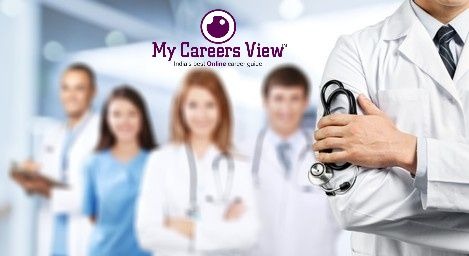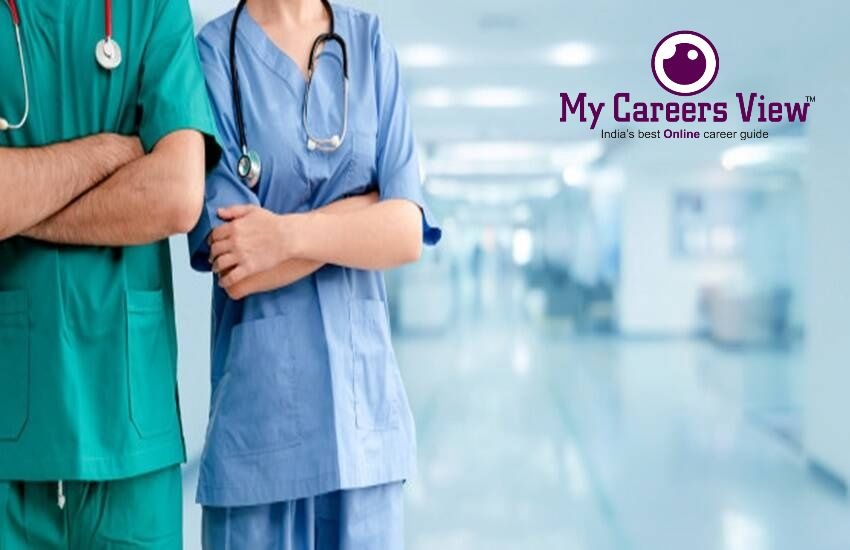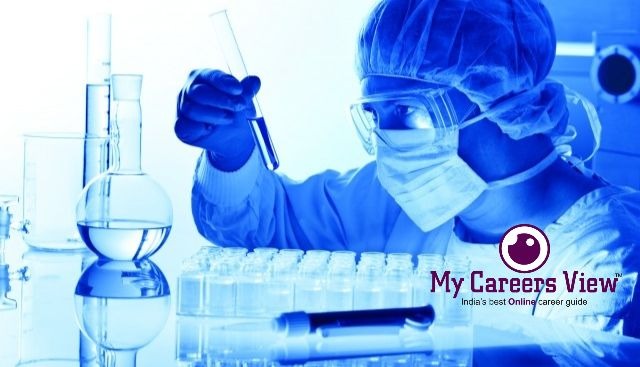.jpg)
Medical Courses, Stream & Career Options A Complete Guidance
The branch of science is concerned with the study of the diagnosis, treatment and prevention of disease. Medical science covers many subjects which try to explain how the human body works. There are a lot of career options available if you choose Physics, Chemistry and Biology as the main subjects. With this combination of subjects, you can step into the field of Medical Science and take up any of the MBBS, MD, BDS, Physiotherapy, or Nursing course. Pursuing these courses will make you eligible to work either as a doctor, or work in medicine-related areas.
Starting with basic biology it is generally divided into areas of specialization such as anatomy, physiology, and pathology with some biochemistry, microbiology, molecular biology, and genetics. MBBS subjects included here are microbiology, biochemistry, anatomy, pharmacology. Physiology and Pathology.

Courses
The medical field contains a broad range of academic education other than MBBS. It contains certificate courses, medical diploma courses, bachelor degree courses, master degree courses, and many short-time knowledge booster courses for medical professionals. Apart from MBBS and BDS, there also exist numerous medical courses. Some such courses are – nursing, Ayurveda, homeopathy, Unani, science courses (B.Sc.), teacher training courses, paramedical courses.

MBBS (Bachelor of Medicine, Bachelor of Surgery)
PCB subject combination, majority of the student's dream of becoming a doctor. The first step is a degree in MBBS which is of 4.5 years and followed by an internship (1 year). During the degree, you will study various subjects such as anatomy, physiology, allied medicine, community medicine, pediatrics, microbiology, etc.
Entrance Exams for Medical: NEET, JIPMER, and AIIMS. Delhi university entrance test (Delhi), UPCPMT (UP), COMEDK (Karnataka), etc.
.jpg)
BDS (Bachelor of Dental Surgery)
BDS is the graduation programme to become a dental surgeon. The programme covers various aspects of dental problems, denture and surgery in the same fields. BDS or Bachelor of Dental Surgery is the most popular medical course after MBBS. Students while aspiring for a medical career at the high school level and beyond look for information that tells them all about BDS. BDS is a 5-year program that involves 4 years of classroom education and 1 year of compulsory rotating internship.
.jpg)
BHMS (Bachelor of Homeopathic Medicine and Surgery)
BHMS is for 5.5 years and would cover a wide range of topics such as introduction to herbology i.e. using plants for medical purposes, fundamentals of ayurvedic plant healing, essential principles of homeopathy, etc. After your graduation, you can pursue MD (3 years) in homeopathic pharmacy, the practice of Medicine, Psychiatry, Pediatrics, etc. according to your interest.
Entrance Exams: NIH Kolkata BHMS Entrance Test, CEE, PU- CET.
.jpg)
BAMS (Bachelor of Ayurvedic Medicine and Surgery)
Bachelor in Ayurveda medicine and surgery is necessary to practice as an Ayurveda doctor. During the degree, you will about modern anatomy i.e. study of human structures, principles of medicine, social and preventive medicines, forensic medicine, etc.
Entrance Exams: All India Pre-Medical/Pre-Dental Entrance Exam, the Uttarakhand Post Graduate Medical Entrance Examination, Kerala State Entrance Exam, National Institute of Ayurveda Entrance exam, AYUSH Entrance Exam.

B.Optom. (Bachelor of Optometry)
During your graduation (Bachelors in Optometry (B.Optom) or Bachelor of Science (B.Sc) you will study the anatomy of the eye, lightening of the eye, refractive errors (loss of vision), etc. After that, you can pursue a master's in optometry (Master of Optometry (M. Optom), Master of Science (M.Sc.).
.jpg)
Public Health Administration
You can pursue graduation in any medical/ allied medicine field and then go for a Masters in Public Health (MPH) program. The benefit of a master's degree is that it will help in building certain key skills, such as writing, research, and analysis.
.jpg)
Occupational Therapy
A bachelor's degree in occupational therapy (BOT) is a minimum requirement to start your career. During the degree, you will learn about the various techniques of recovery, and you will get hands-on experience through various internships and training programs. Master in occupational therapy is recommended if you want to specialize in a particular area of OT.
.jpg)
Physiotherapy
A bachelor's degree (Bachelors in physiotherapy (BPT), followed by a master's (Masters in physiotherapy (MPT)), is necessary. There are various diplomas that you can pursue after your graduation, but a master's degree will hold more value and will fetch greater job opportunities.

Clinical Research
You must first complete B.sc in the field that you are interested in such as, Botany, Zoology, Chemistry, Biochemistry, Biotechnology, Microbiology, Genetics, Nursing, M.B.B.S / B.D.S / B.A.M.S / B.H.M.S /B.V.Sc, etc. Once you are done with your bachelor's, there are a number of universities that provide an M.sc in clinical research.
.jpg)
Radiology
A graduation degree (B.Sc. Radiology) in radiology is generally enough to start your career in the field. Professionals generally specialize in any one procedure at master's level with M.sc radiology.
.jpg)
Audiology
The first step is a bachelor's degree (Bachelor of Audiology and Speech-Language Pathology), during which you will be exposed to the basics of the field. At your Masters's level (M.Sc in Audiology) you will have detailed information and exposure to different aspects of the auditory system and various methods of diagnosis and management of auditory problems. Getting an RCI certification is an added advantage if you want to practice independently.
CLICK HERE FOR COURSE LIST & DETAILS
Show More
Sri Aurobindo Marg, Ansar..., Delhi(NCR) , New Delhi
Plot No. 2, Sector - 20, ..., Nagpur , Maharashtra(MH)
Virbhadra Road Shivaji Na..., Dehradun , Uttarakhand(UK)
Great Eastern Rd, AIIMS C..., Raipur , Chhattisgarh
Sijua, Patrapada, Bhuban..., Bhubneshwar(Khordha) , Odisha
Saket Nagar, AIIMS Campus..., Bhopal , Madhya Pradesh (MP)